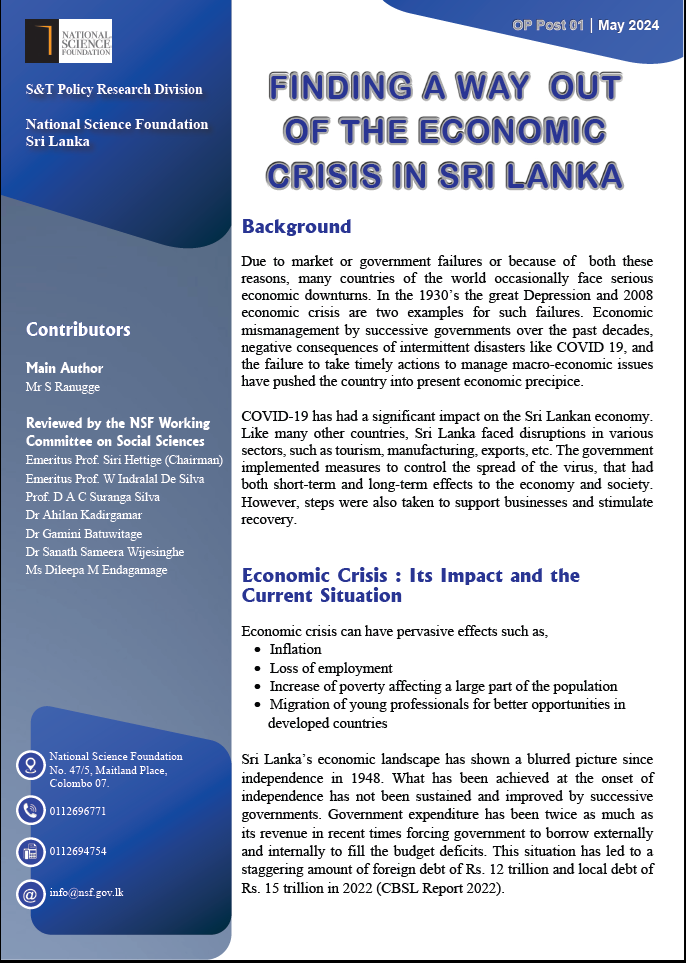Objective of this Opinion Posts Series
Time to time Sri Lanka is experiencing many fluctuations in its economy, governance, social lives, culture and environment. Currently, Sri Lanka is undergoing a significant socio-economic transformation due to its adverse economic crisis. These adversities may create substantial unforeseen consequences in the lives of the people. Therefore, sustainable development plans should be in place to overcome such crises being experienced and foreshadowing too. Such development plans should be developed based on formulated realistic policies. Consequently, it is crucial to implement proper policies to manage transformation and achieve the desired growth. The NSF aims to identify evidence-based policy recommendations on nationally important issues and to forward these to the relevant authorities enabling the general public to contribute to this endeavor as well. Therefore, the NSF intends to obtain public opinion on a series of nationally important topics. Your valuable ideas and comments will help us to formulate such policy recommendations to accomplish the said purpose.
What We Expect from You
The content of opinion posts is provided by the members of the NSF Working Committee on Social Sciences, addressing some of the country's pressing issues in which views and opinions expressed are those of authors and do not necessarily reflect view of the NSF. However, intended purpose is to get the public engagement and trigger a constructive dialogue thereby to crystallize workable policy recommendations addressing ground reality. Therefore, your constructive inputs, comments, suggestions, and viewpoints on these posts are welcome. Please share your genuine opinions in the comments section. The NSF strictly maintains your confidentiality and will not share your ideas with any third party.


